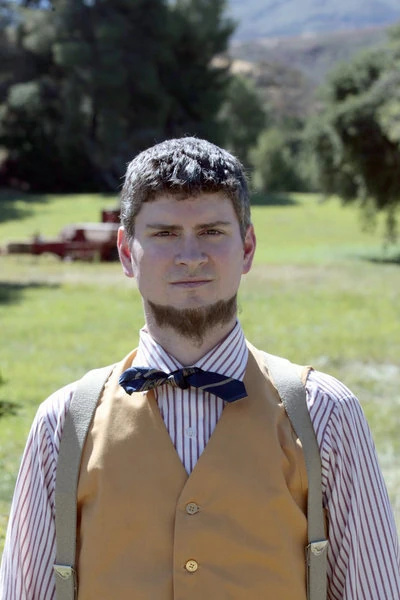Maybe it’s because I’m from California, but we learned Mexico-Spanish. The books included Spain-Spanish (i.e. vos conjugations), but my teachers never included it in our lessons.
Kinda the same here in Nevada. Our Spanish teacher explained them briefly but told us we didn’t need to learn them, didn’t test us on them, so on.
I had a teacher from Spain for three years, then for the next four years they were from various countries: Argentina, Colombia, Mexico, and the US. It was great to get used to each accent.
Here in Canada we learn Parisian French in school despite Quebecois French being one of our national languages.
It’s probably because, like BBC/Oxford English, those are the places that have an “official” version of the language they try to preserve. Same thing happens with Portugese, despite Brazilian Portugese being more commonly spoken than Portugal Portugese.
When I was in school in the 1970s it was because they couldn’t get French teachers from Quebec. The youth wanted to stay and build a sovereign Quebec. So they imported French teachers from France and I speak like a French Duke.
I don’t know what we you’re referring to, but in the part of central Ontario where my nephew attends school, the French immersion schools are most definitely teaching Quebecois French.
I tried speaking real French with my nephew and he reacted as if I was a space alien.
Because it’s the same language. I grew up in Argentina, and the “Spanish” (the name of the language is actually Castilian because there are multiple languages in Spain) we learn at school is the “Spain” one. In reality it’s the language as defined by the Real Academia Española so the language is the same (yes it includes the vosotros conjugation, no, no one outside Spain actually uses that but we learn it in school).
The differences between Mexican, Argentinian or Spanish Castilian is more in the pronunciation and the use of some words, but the language we learn at school is all the same, and I imagine it’s the same one that you learn too.
That being said, using vosotros to us sounds similar to how using thy might sound in English. A good teacher would explain that outside of Spain we use ustedes which uses the plural third person conjugation (i.e. the same one as ellos), but the correct plural second person is vosotros.
Mine taught Mexico Spanish, but with a brief reminder every once in a while about the vosotros conjugations.
French taught on Canada (outside Quebec) is France French, not Quebec French. My source on this is that I was taught to say “we” for “oui” and not “wayh”. And the Quebec French sound I’m only getting from comediens on CBC so that could be way off.
France French people say wayh too. It’s the same difference between saying “yes” and “yeah”.
I once stayed in a youth hostel rural Quebec and had a really weirdly hostile reception from people there, despite dredging up my very best schoolgirl French to try and make conversation. Turns out they thought I was from Ontario. When I revealed I was a Kiwi they were all suddenly very friendly. Too late!
Ouais is more like ‘yeah’, not ‘yes’.
We learned Mexican Spanish in my redneck school.
because the school system is controlled by old people and they don’t know the difference. in my high school we had Spanish teachers that were actually from Mexico and south America and they taught us useful Spanish.
I think there is a European bias and maybe a (perceived?) prestige bias to Castilian as well.
yeah, especially with the older generation (who should not legally be allowed to be administrators, if you are old enough that your brain doesn’t work anymore you can’t be trusted with authority) on top of their lack of understanding about the difference.
I learned Cuban Spanish. Upon going to Spain, I was told I spoke with the English vocabulary and accent equivalent to a southern yokel from the 1970s.
What state are you from? In California, we learned Mexican Spanish. My teachers very briefly mentioned vos/vosotros, but we never spent any time on those conjugations and were never tested on them.
Although… now that you mention it… maybe the textbook was for Iberian Spanish… I definitely remember the teacher going over vocabulary, getting to the word “coger”, and then 90% of the class busting up laughing, while the other 10% was confused! 😂
Maybe we did have Iberian Spanish textbooks, but since most people in my town were Mexican, we learned Mexican Spanish from the teacher using an Iberian Spanish textbook?..
I’ll be honest, I never hear anyone say vos in Spain, except an Argentinian who said it all the time and it sounded really odd
I grew up in California and had the opposite experience. I had friends who grew up speaking Mexican-Spanish at home, and would take the Spanish classes to get an easy A.
The teachers never understood what the Mexican-Spanish students were saying, and kept telling the native speakers that they were doing it wrong.
I took Spanish-for-Spanish-Speakers in public school so my experience may be different.
“Spanish-Spanish” (Castillian-Spanish, Castellano) is pretty easy universally understood and accepted as a “proper” Spanish. It seemed to work well despite our mixed nationalities in the class (Cuban, Dominican, Puerto Rican, Colombian, Venezuelan, Nicaraguan, and a few more but those are first that came to mind.)
We learned American Spanish when I was in school, no vosotros, no soft S, because we learned it from Cuban teachers. My kids got a mix but mostly, as you are saying, Spain Spanish. I think part of the reason is that Spain Spanish is one thing - canonical Spanish, yes? But in the Americas it’s varied, different in the US from Mexico, from Colombia, from Argentina, Costa Rica. Dialects.
I think it’s silly to say that Spain Spanish is canonical, though. Like, says who? Spanish people? Spanish in Spain is a dialect just like any other Spanish-speaking country. Imo it makes sense to teach the dialect that learners are most likely to encounter based on their geographic location, with context about the other dialects.
Like many others have stated, my (also redneck) school taught primarily Mexican Spanish.
I don’t know for sure what we learned, but I remember my Spanish teacher talking about a girl from Spain that came to her class and didn’t do her work.
Apparently the girl wasn’t doing well in Spanish class and later accused the teacher of teaching “gutter Mexican.”
Which … honestly didn’t hit me as the flex my Spanish teacher seemed to be making it out to be.
It is the same language. In fact some regions of Spain suck at speaking their own language. Spanish has a central authority that collects and organizes Spanish as it is used in the real world and it codifies it into its official rules. Furthermore, because of its grammar and syntax rules, you always know exactly how every word is pronounced just by reading it. There might be accents and regional synonyms, but there is a “standard” Spanish that everyone learns speaks.
And then when to actually spend any time in a place where Spanish is the first language, you start to understand that, like any language, there’s the academic form (commonly taught to non-native speakers as a second or third etc. language), and then there’s the local version, complete with an the colloquialisms and slang and unique pronunciations. In Argentina, the double-L (which school taught me makes a “y” sound, “ella” being pronounced basically “ey-ya”) is commonly produced as more of a soft “J” sound (“ella” becomes “ey-jha”). As far as my (admittedly limited) knowledge goes, that’s really not common outside of Argentina. And then in Bolivia, especially among native descendants (Quechua and Aymara predominantly), the double-r (which school taught me is one of two conditions when you roll the R with a tongue trill) is more commonly pronounced almost like a “zh” (“herramienta” becomes “hezhamienta”). Again, not common outside of Bolivia. Spain has that classic “Barthelona” lisp, and uses the “vosotros” pronoun where most South American Spanish speakers would probably use “ustedes” (basically “y’all” vs. “esteemed plural second persons”). And that’s not even getting into which verb tenses are used most widely in different regions. There’s like 14 or 15 specific verb tenses in Spanish to English’s 7, and in school I was taught to use specific ones to communicate effectively; then I went and spent two months in Bolivia pretty much never using past perfect or predicate, instead using past imperfect for 95% of interactions, only using past perfect with other folks que hablan español como segunda lengua, or in a few very specific interactions where more specifically was required than would be so in common, everyday interactions.
Colombians, at least Paisas, also have the double ll = j sound and use vosotros! Spanish dialects can get wild lol
Neat! I probably never would have known that if you hadn’t told me!
Do they? Duolingo, meanwhile, teaches a Latin American dialect (possibly Mexican), with “ustedes” as the second-person plural. (IIRC, their Portuguese is also Brazilian, which is a greater leap.)
Does it? My partner has learned some very strange words I have never heard used in mexico. But I guess the rest of Latin America also uses different dialects.
From what I recall, it does, especially for new words (items like “backpack” and “T-shirt” seem to have almost a different word in each country). Maybe Duolingo’s Spanish is from former south (Argentina or Chile perhaps?)
Dosen’t Mexico speak Spanish?
In the same way that Americans speak English.
Sure, their language is mutual intelligible with English, but if an Englishman comes over here and asks for some chips, they’re going to get a bag of crisps. They’ll mess up verb conjunction on a bunch of collective nouns.
And bless the souls of my Australian mates who come here and call everyone a cunt.











